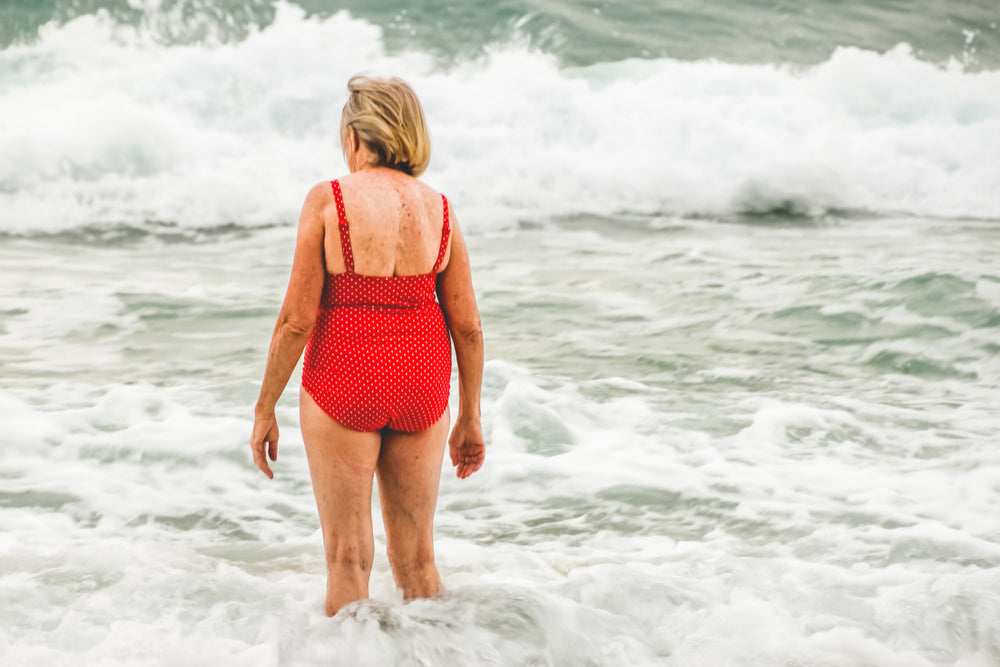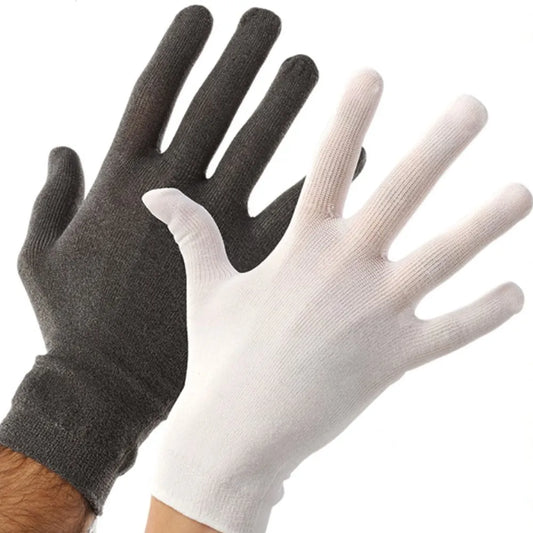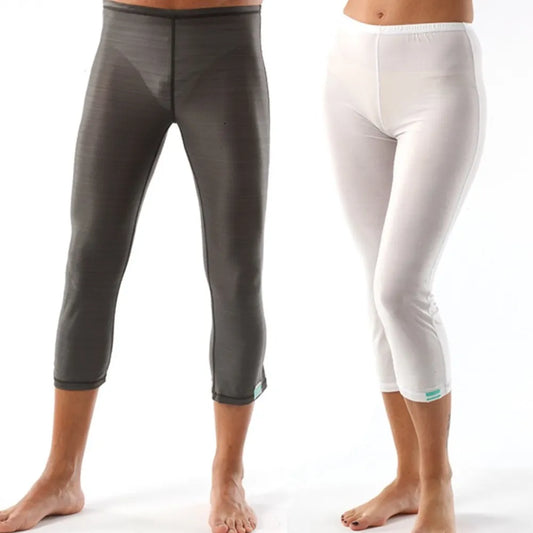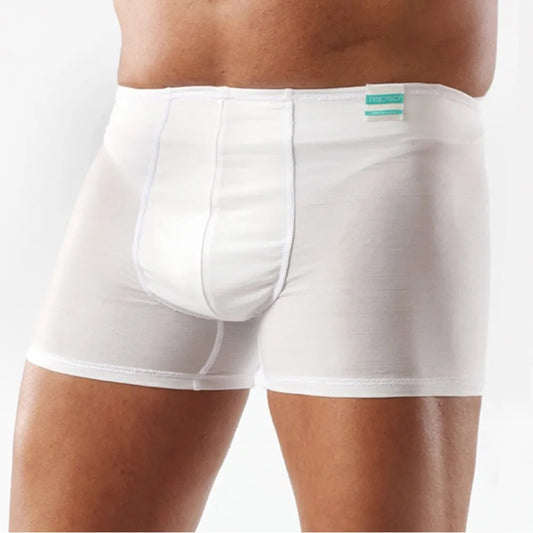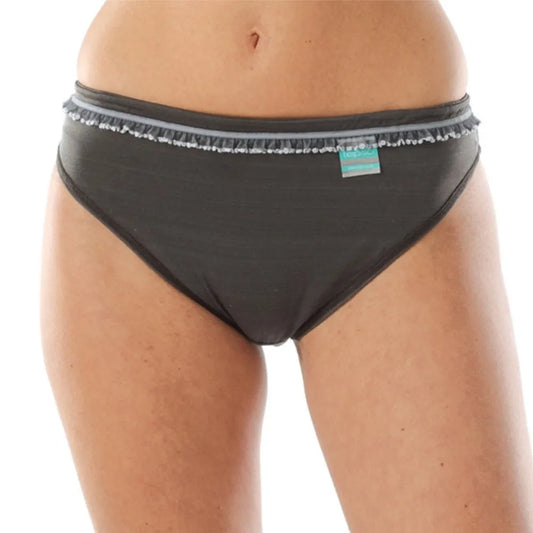There is very little scientific research on the effectiveness of sea salt in treating eczema. The literature includes just one small study of 13 adults in Japan 1 and one laboratory study on mice2. There is also one study that highlights the risks of skin infections when swimming in questionable quality seawater3.
However, there is plenty of anecdotal evidence suggesting that salt water may be helpful in clearing up eczema. This is especially true if the eczema is oozing a lot or where the secondary infection is common. A number of UK dermatologists recommend regular salt baths to their patients with atopic eczema as part of their treatment plan.
How can sea swimming help eczema?
Firstly, of course, it would be logical to assume that the ability of salt to pull water from soft tissue would result in very dry skin. Of course this is all down to how long you bathe for… don’t stay in salty water for hours on end!
However, the salt in sea water actually has antiseptic properties that can reduce the risk of infection. Infection around over scratched, broken skin is a common result of eczema, especially in young children who don’t have the ability to reason yet and therefore only want the immediate relief of the itch, however they manage it!
Sea water is also packed with healthy skin-friendly minerals like magnesium, calcium, and potassium. Magnesium is an anti-inflammatory and antimicrobial mineral that not only eases itching, but also draws the moisture from eczema-causing bacteria and fungi to hinder its development
The minerals in sea water are absorbed by the skin helping keep it soft and moisturised. The salt-water has anti-inflammatory benefits as well, helping reduce swollen and painful skin while relieving itching.
Tops tips for sea swimming with eczema
- Always check the seawater quality with the local council and water authority, especially following periods of heavy rainfall. Surfers Against Sewage has real-time monitoring of untreated sewage discharges here.
- Pick a beach with a fresh water shower so you can rinse off after your dip. Salt can make the skin feel tight if it dries on the skin. If no showers are available, towel dry rather than air drying to get rid of the worst of the salt.
- This is going to sting! The first few times sea water touches active eczema can really, really smart but stick with it. The cold will soothe the discomfort. Get in deep enough so you have to swim, this will prevent any unconscious scratching. Smearing vaseline over open cracks before you get in can help
- Take your usual emollient to apply when you get out (just don't let it get anywhere near sand!).
Can’t get to the beach? Try a salt water bath…
If you can’t get to the beach, you can get similar benefits soaking in an Espom salt bath at home
- Use 1 cup of Epsom salt or sea salt for a standard-size bathtub.
- Pour the salt into the warm running bath water and stir the water to help dissolve all the grains. Alternatively you can dissolve the salts in a jug of very hot water first. This avoids any uncomfortable gritty bits at the bottom of the tub.
- Soak in the tub for at least 20 minutes.
It is important to rinse with fresh water after a saltwater bath to remove any residue and prevent that scratchy “beach” feeling when you put clothes or pyjamas back on them. Pat gently with a towel and apply any emollients as usual onto slightly damp skin.
Our sources:
- The effect of balneotherapy with natural mineral dissolved water on dry skin in atopic dermatitis: A phase IIa, nonrandomized, controlled study. Journal of Cutaneous Reserach and Allergy, 2021, Uchiyama A, Fujiwara C, Inoue Y, Uchida K, Hiyama M, Itabashi H, Motegi S. https://onlinelibrary.wiley.com/doi/full/10.1002/cia2.12195>
- Application of concentrated deep sea water inhibits the development of atopic dermatitis-like skin lesions in NC/Nga mice. Bak J-P, Kim Y-M, Son J, Kim C-J, Kim E-H. BMC Complementary Medicine and Therapies. 2012. https://www.ncbi.nlm.nih.gov/pmc/articles/PMC3517761/
- Review: Aquatic Sports Dematoses. Part 2 – In the Water: Saltwater Dermatoses. Brook E. Tlougan MD, Joshua O. Podjasek MD, Brian B. Adams MD. International Journal of Dermatology. 2010. https://onlinelibrary.wiley.com/doi/10.1111/j.1365-4632.2010.04476.x
- Water Baths and Eczema – Information for Parents. Nottingham Support Group for Carers of Children with Eczema. 2007. http://www.nottinghameczema.org.uk/documents/19-salt-water-baths-and-eczema.pdf

